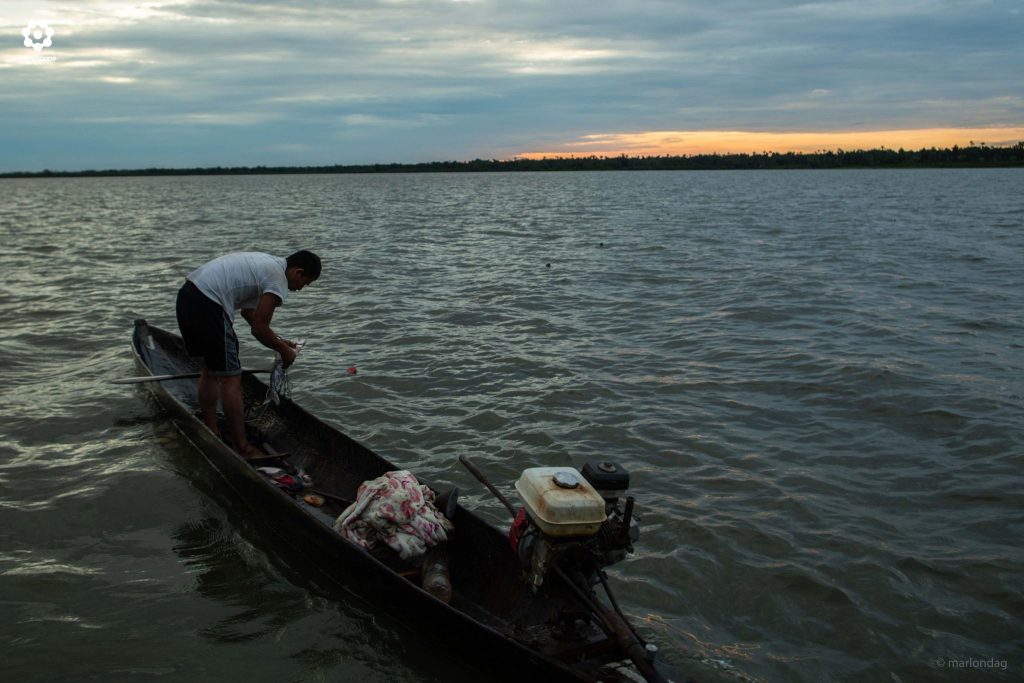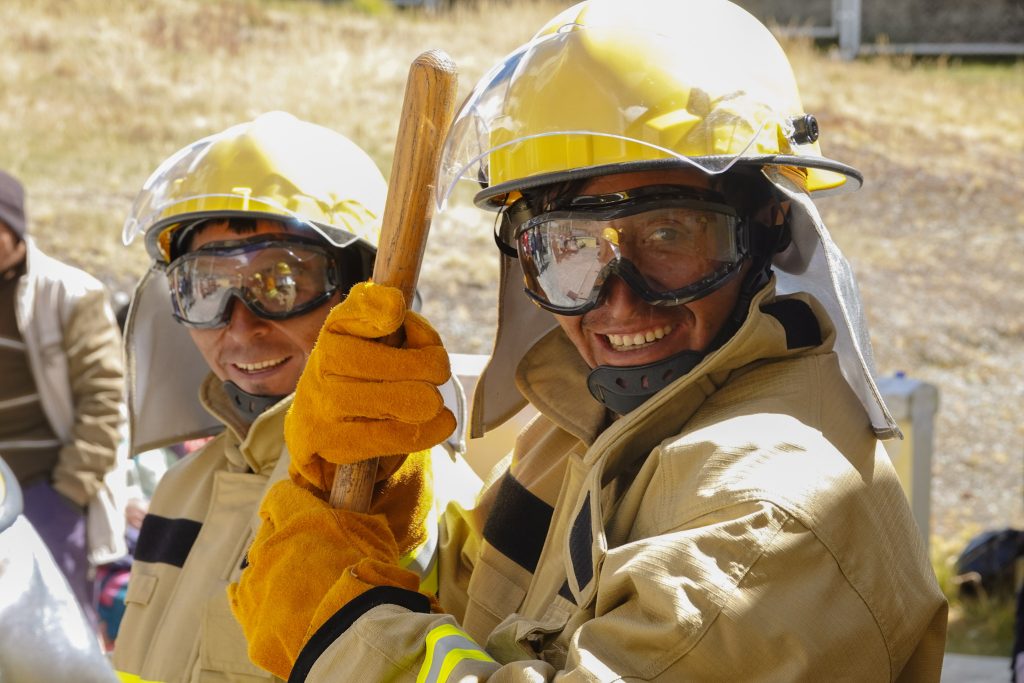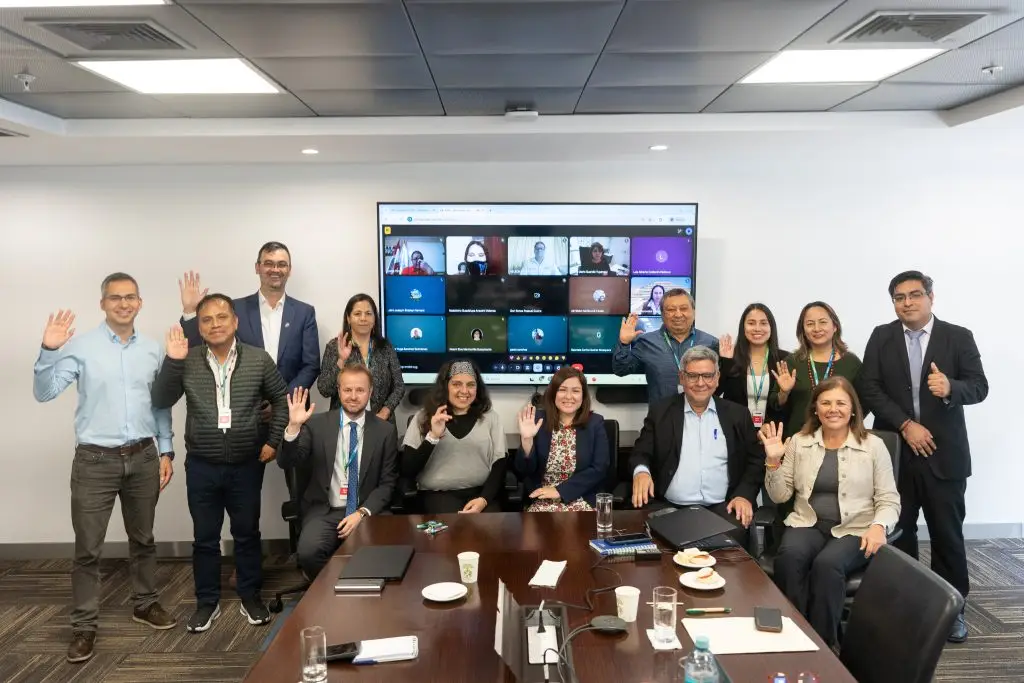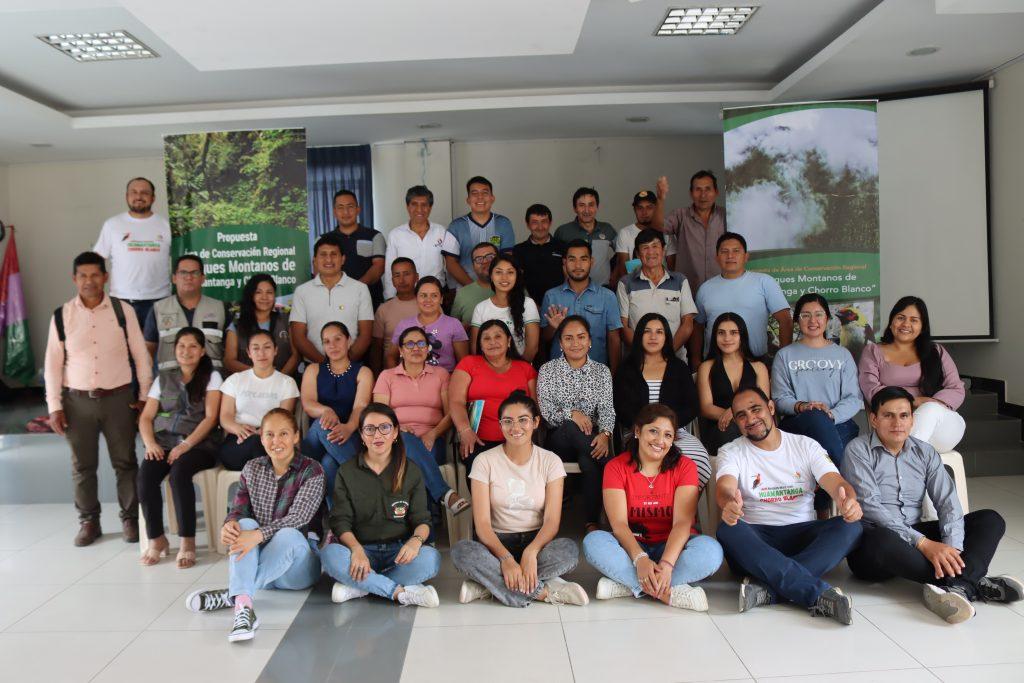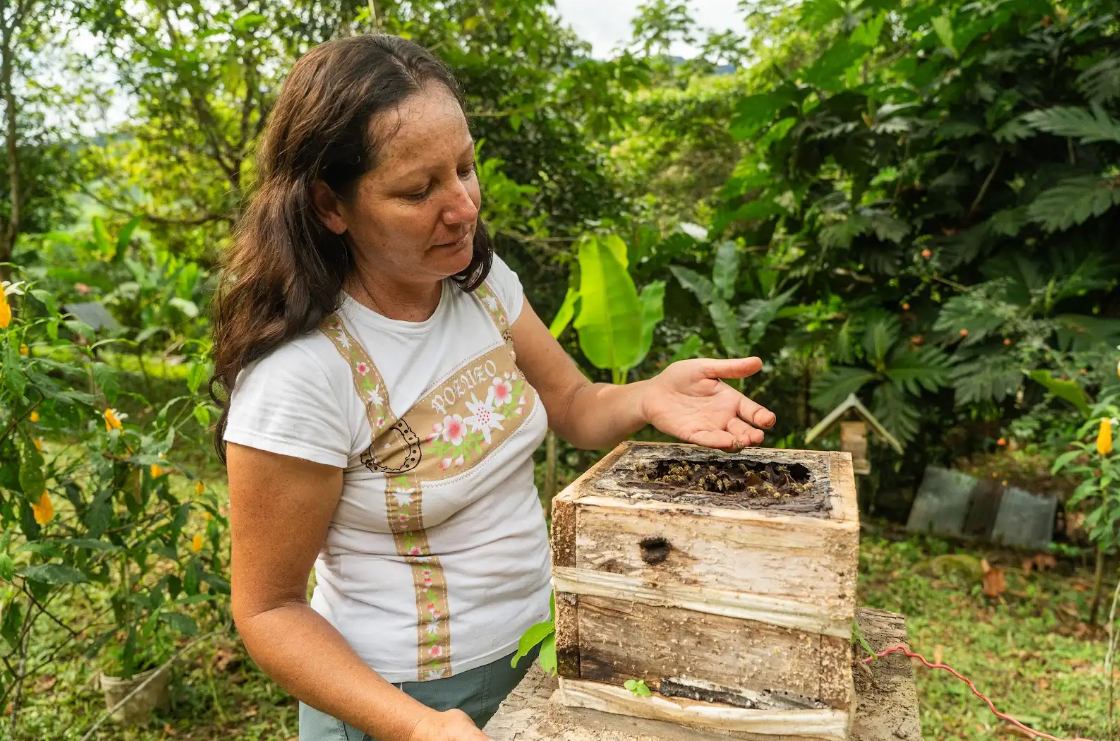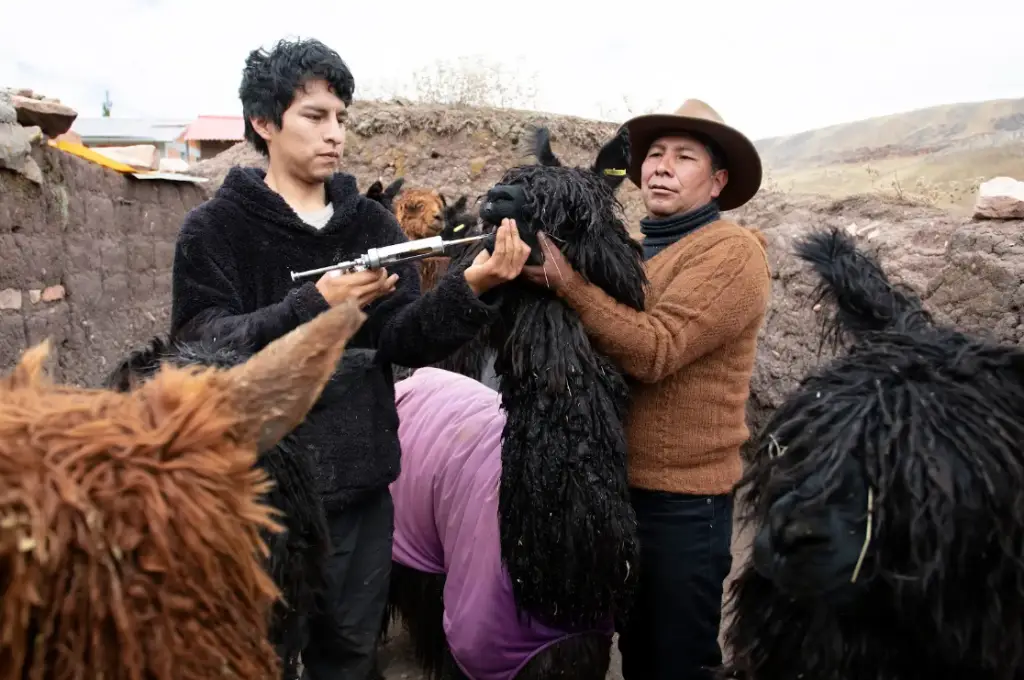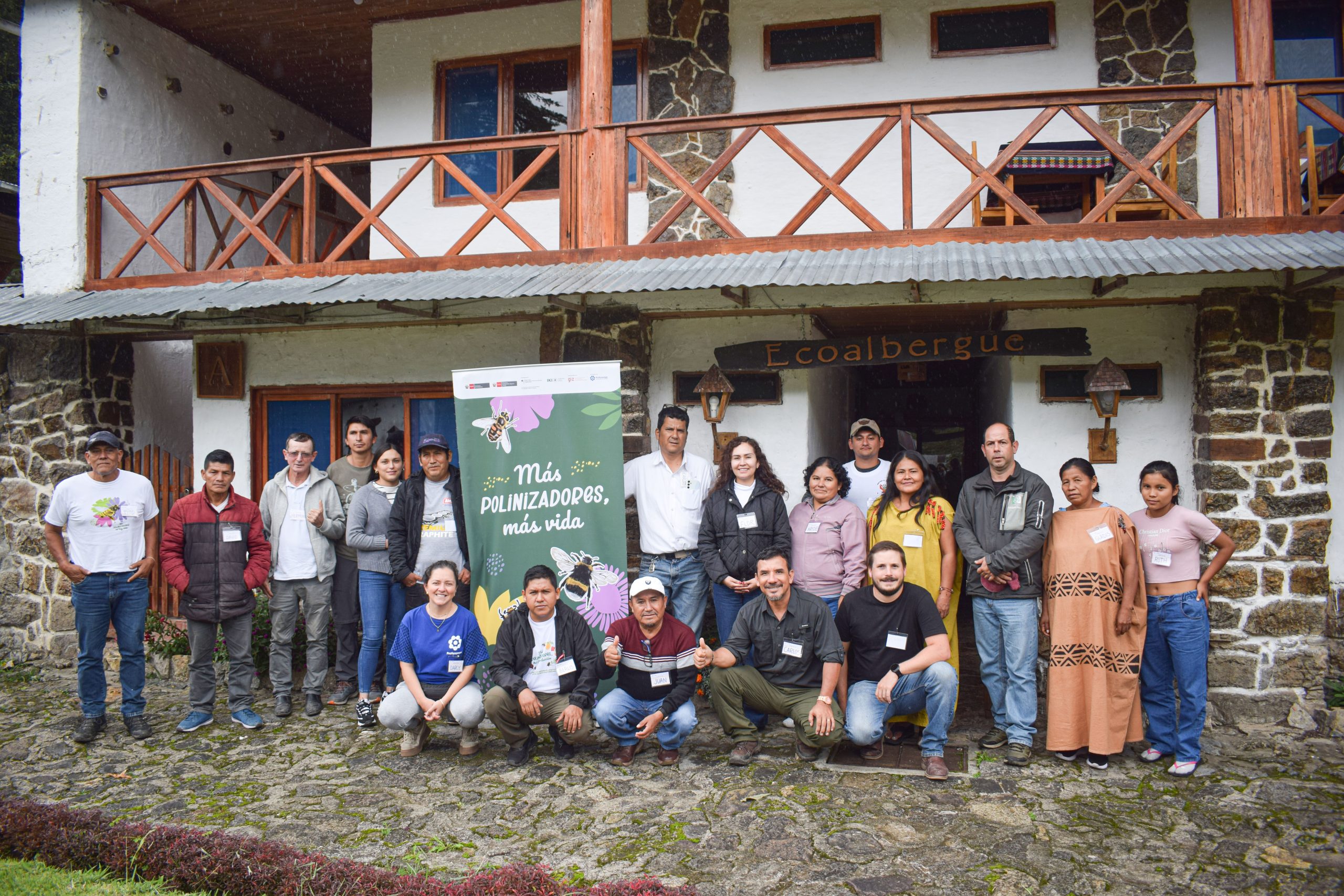Native Awajún communities of the Sinchi Roca, Nuevo Progreso, Chorros and Pijuayal road sector of the Manseriche district in the Datem del Marañón Province in Loreto together with Profonanpe, the Peruvian environmental fund that leads the Datem del Marañón Wetlands project, planted 18,000 boquichico (prochilodus magdalenae) young fish, a freshwater and tropical climate fish that today allows 32 indigenous families of the Awajún communities, located in the Saramiriza corridor of the Middle Marañón Basin, to raise and market Amazonian fish together with the Sugkas producers’ association, thus benefiting 120 people directly with income generated by the bio-business, an ally of the forest.
“Bio-businesses make it possible to improve the resilience of indigenous communities living in wetlands (aguajales, lakes) rich in carbon storage in the province of Datem del Marañón in the Loreto region, and reduce the greenhouse effect from deforestation emissions,” stated Ignacio Piqueras, Profonanpe’s Bio-business specialist.
The Sukgas producers’ association is made up of the Sinchi Roca and Pijuayal native communities, belonging to the Awajún ethnic group, located in the Manseriche district on the Saramiriza-Santa María de Nieva road axis, a territory where population growth, together with irrational fishing and other anthropogenic actions (those produced by human activity), have caused the availability of Amazonian fish in their natural state to be considerably reduced.
These conditions place the aquaculture activity in front of a bio-business opportunity with development potential, a condition that occurs in the Sukgas association, which has been implementing the initiative to develop Amazonian fish farming with a focus on bio-business and food sustainability, and with a social innovation component, since with the National Fishing and Aquaculture Innovation Project (PNIPA), a training program for indigenous aquaculture promoters was developed.
“I consider the positive impact of the participation of Awajún families to be important; the bio-businesses allow them to generate income by raising Amazonian fish that no longer exist in their natural environments,” mentioned Eliaquin Sanchium Yampis, President of Sugkas.
These actions will not only generate income, through the Amazon fish resource, for the Sugkas association and its partners, but also represent a food security strategy in an area heavily affected by oil spills and contamination of its water bodies and rivers.
The importance of native peoples in the conservation of these ecosystems is recognized, mitigating climate change and giving rise to an alliance that improves the quality of life of their guardians. In this way, communities can better deal with climate change.
About the Datem Wetlands Project
The Datem Wetlands Project seeks to improve the resilience capacities of indigenous communities living in wetland ecosystems rich in carbon stocks in the Datem del Marañón province, Loreto, as well as to improve their livelihoods and reduce greenhouse gas emissions caused by deforestation.


